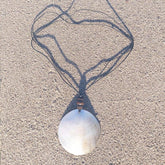What is a Sweatshop: Part Two
In part one I spoke about defining a sweatshop both historically and in modern times.
While there is nothing wrong with going on marches, writing to politicians, organising petitions, or gluing yourself to Westminster bridge in order to make your voice heard, most people do not have the time or the spare capacity in their lives to take on any cause to this extent.
Is there anything we can do then? Is there is something relatively easy that doesn’t involve a large commitment except in principle? Fortunately, the answer is yes.
Purchase Power
We as consumers have considerable power and leverage over companies that violate these (or indeed any) of principles we hold dear. Many people do not realise that every purchase they make is effectively an endorsement of the company that is providing the goods or services even though they may not actually agree with the ethics of that company.
Amazon would be a great example. We all know someone (maybe ourselves) who still buy frequently from Amazon even though we disagree with their ethics, whether it be the huge sums of money being amassed by one man and a few corporate shareholders; closing down the high street; their treatment of employees; or the fact they have no regard for their supply chain going back to the sweatshop.
What we need to understand, to really comprehend is that purchasing is a “consumer vote”. This means that we can vote out those companies we do not like. Think about that.
Indeed, the whole purpose of RainbowLife is to give all of us options; the ability to utilise the power of our purchases to make a difference. As we grow we will offer people just like us the ability to reap the benefits of Amazon (easy, fast buy; quick pick and pack; and fast shipping). There are many stores just like us with the same goal. It is in other words becoming easier and easier to find alternatives to companies we don’t like.
And guess what? If we don’t like them, we can vote them out!
With every penny we spend we can choose to take an ethical stance, whether for the environment, for people or often both.
Take the fashion industry, recently been called to task for STILL participating in sweatshops. Even beloved brands such as Marks and Spencer’s have come under fire for not checking their supply chains and selling clothing made from Uighur produced cotton.
When these practices, particularly in “fast fashion” came to light companies the stocks of big such as H&M (sweatshops in Bangladesh with child labour) and Boohoo (sweatshops in Leicester) took a dive. Nike has never really recovered “trust” after the sweatshops in Indonesia using child labour were brought to light.
At the end of the day, we can make a big difference by simply choosing brands that we do trust to be sweatshop free in their supply chain.
Who to Trust?
Fortunately, it is getting easier and easier to work out who the good people are.
How?
Well, if a company does not state their supply on their website, then in today’s world it means they are getting sweatshop, possibly child made goods and hoping you don’t notice. All reputable companies realise the reputational damage caused by NOT checking their supply chains. It really is that easy.
Look for artisan produced goods. They are produced by small cooperatives, self-help groups or charities which kick-start local enterprises. The picture illustrates one such small group.
Next time you shop online or in your high street, pause.
Individually, just as in any democracy, your one vote is a drop in the ocean; but together we topple dictators and the morally corrupt.
Vote with your conscience.
Realise the power of your purchase to directly change lives. To literally put food on the table or send a kid to school or provide a village with a sanitary toilet; to stamp out sweatshops, modern day slavery, and child labour because for the companies that are vying for our money it just isn’t worth it anymore.













Leave a comment
All blog comments are checked prior to publishing